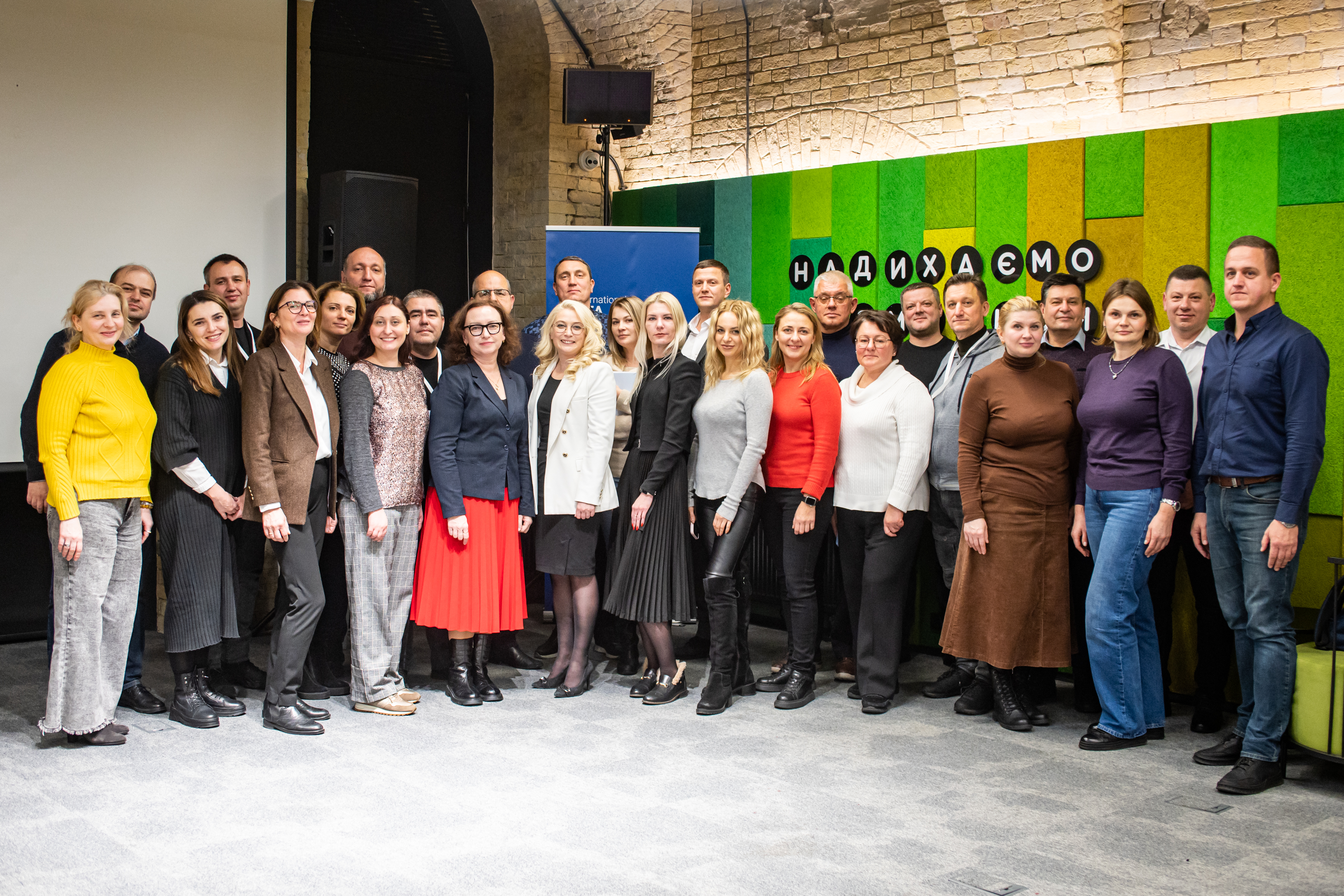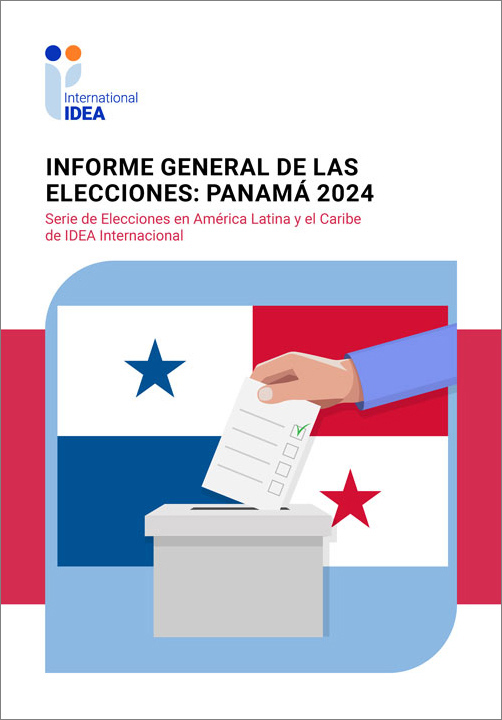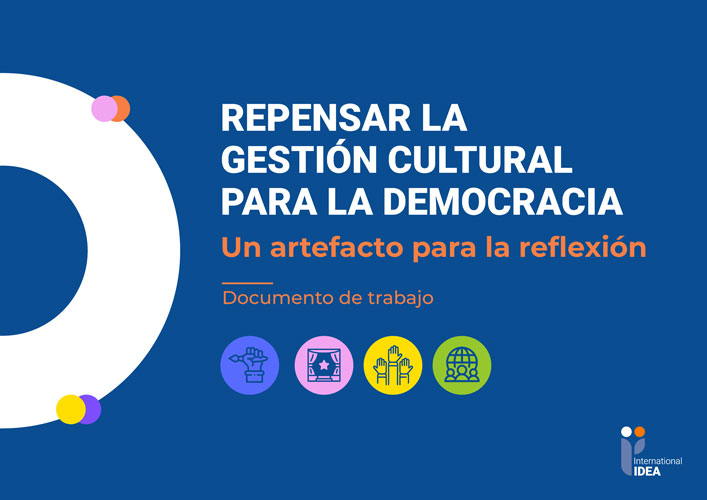Ideally, political parties should be the institutional transmission belt that conveys the will of the voter to government and back. They are the vehicle through which popular sovereignty is expressed and then transformed into public policy and action. In addition, multiple parties provide a mechanism for competition, so that voters have a choice in conveying their mandate to the rulers.
Search
Region
Country
Type
Political parties are the heart of politics in a representative democracy. However, parties also have the potential to become a political liability to democracy. Whether political parties prove to be an asset or a liability depends crucially, among other things, on the context within which they operate, their mode of internal governance and how they respond to external political stimuli.
Little systematic knowledge exists relating to how political parties are regulated and how they function internally in different countries. There is also very little known about the operational problems parties face.
The objective of International IDEA’s Programme of Research and Dialogue with Political Parties is to contribute to an environment that is conducive to the development of political parties, and thereby to contribute to democracy.
The debate on appropriate methodologies for evaluating democracy support has gained momentum in the last two decades, in tandem with significant increases in democracy assistance.
Si los bolivianos opinan de forma mayoritaria que las leyes no se cumplen, ¿por qué los conflictos reivindican la promulgación, reforma o derogación de normas?; si demandan cambios en sus vidas, ¿Por qué el imaginario de la transformación se condensa en la reforma de la Constitución más que en la gestión pública?; si los medios de comunicación no se cansan de amplificar disputas y desencuentros, ¿Por qué la Asamblea Constituyente preserva elevados niveles de legitimidad?; si el carácter pluri
En el marco de las elecciones generales del año 2006, IDEA Internacional y la Asociación Civil Transparencia realizaron un análisis integral del proceso electoral presidencial y parlamentario publicado bajo el título La igualdad esquiva: una mirada de género a las Elecciones Generales de 2006, estudio que identificó una serie de obstáculos y desventajas que impedían a las mujeres afrontar una campaña en condiciones de equidad con los hombres.
The advance of democracy in Latin America over the past quarter century has contributed significantly to ensuring respect for fundamental political freedoms, civil liberties, and human rights.
This updated and expanded edition of Democracies in Development highlights how a legitimate and effective democracy is also essential for sustainable economic and social development.
Reconciliation is highly complex process that involves many different issues, stages and actors.
There is no ‘one-size-fits’ all success model, nor a quick-fix solution. It is also a time-consuming process, which, as several seminar participants and the seminar noted, affects the lives of several generations. A long-term approach to promoting reconciliation is thus essential.
Análisis de información obtenida de cuestionarios y entrevistas con los líderes de partidos en Bolivia, Colombia, Ecuador, Perú y Venezuela. Revisa la historia del desarrollo de partidos políticos en la región y analiza su gobierno interno y mecanismos de toma de decisiones; entrenamiento, financiamiento y crecimiento, con aún limitada participación de la mujer, jóvenes y minorías étnicas.
Democratic dialogue strengthens democratic institutions by providing citizens with the opportunity to voice their concerns, needs and interests—especially people who are normally disempowered from expressing themselves.
After the fall of the Berlin Wall in 1989 political parties in Central and Eastern Europe were perceived negatively by the public. Indeed, mobilization against them even became a source of legitimacy for new civil movements.
Today, the average proportion of women members of parliaments stands at a mere 17.2 per cent. Only 19 countries in the world have achieved the goal of 30+ per cent women’s representation in national legislatures, a goal adopted by the Beijing Process in 1995.
This report provides a broad, comparative analysis of 27 African countries and 75 political parties. The data was assembled during 2004–06 and was followed by national and sub-regional dialogue workshops between political parties, researchers and civil society.
The agenda for reform that emanated from the research and dialogue process is reflected and discussed in the report.
With one-fifth of the global population, South Asia is the largest democratic region in the world today, even though military rule and monarchy still exist in certain countries.
The level of political representation of women in different legislative bodies around the world varies greatly, standing at 16.9 percent in the world’s legislatures in 2006 on average.
The uneven political playing field on which women and men compete has led to a number of reforms—primarily quotas or other positive action strategies—designed to safeguard the presence of women in parliament.
Este estudio examina el impacto de la efectividad de las organizaciones políticas y la vida en los países Andinos (Bolivia, Colombia, Ecuador, Perú y Venezuela).
Analiza la historia y estructuras de gobierno en cada país, la pobreza, programas sociales, y agendas y plataformas de los gobiernos y organizaciones políticas.
El presente tratado expone de manera sistemática y comparada el derecho electoral y su relación con la democracia en América Latina. Expresión de ello son las reformas realizadas en las legislaciones electorales de distintos países latinoamericanos.
For many across the world, democracy is in a crisis of legitimacy and credibility.
The idea that people have the right to control their government and that a government is legitimate only if and when it is controlled by the people has won almost global recognition.
As Latin American countries have emerged from political conflicts, politicians and citizens have realized that consensus and dialogue are both requisites for democracy and a reflection of democratic practice. While no two situations are alike, the solutions are often similar, and much can be learned from each experience.
Esta publicación es parte del currículo diseñado para la capacitación a partidos políticos. Cada módulo incluye parte teórica, preguntas para reflexión, ejemplos y estudios de caso de Latinoamérica.
El currículo también incluye:


